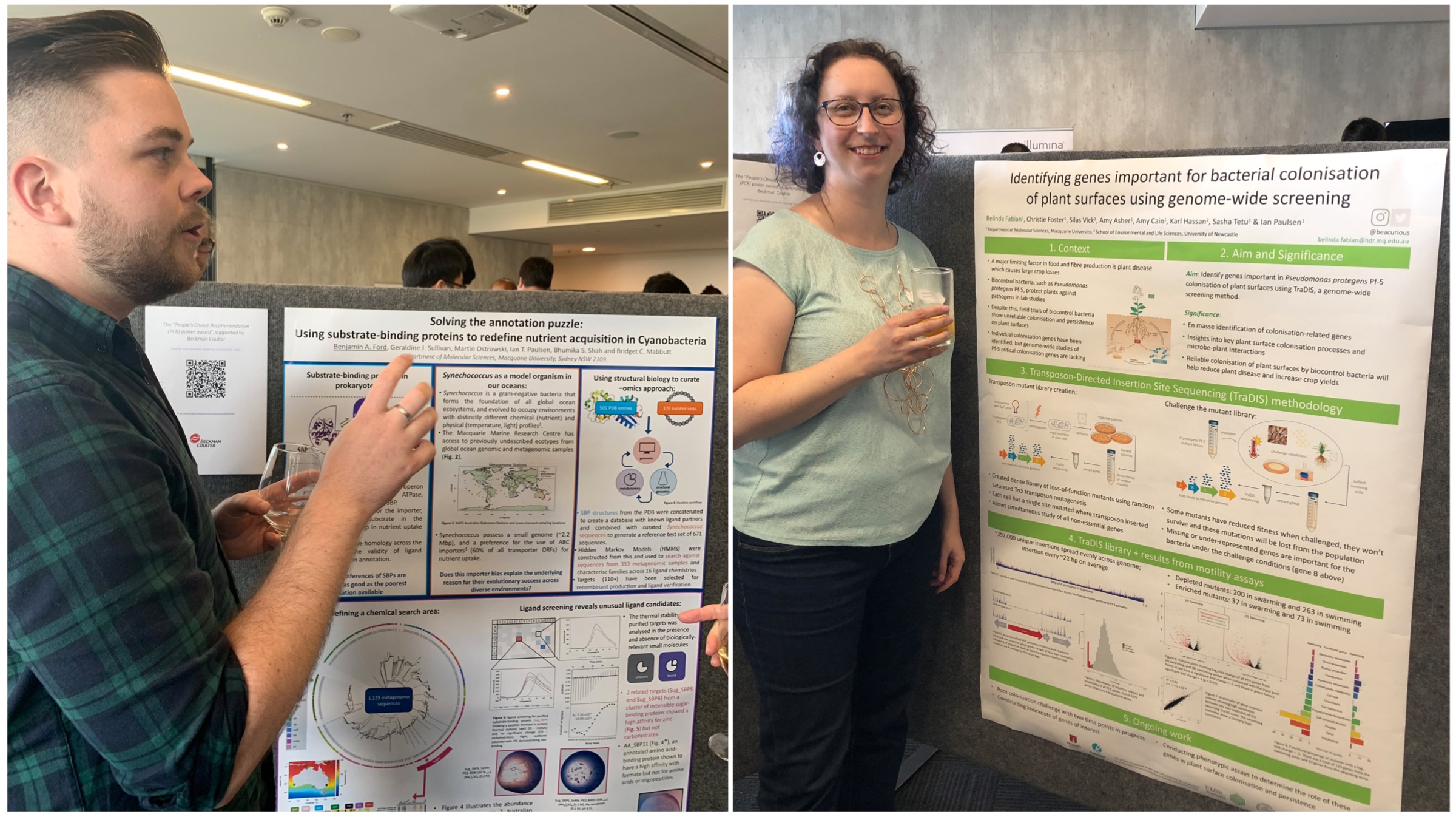By Belinda Fabian
On the 20th of March, microbiologists from all over Australia attended the 8th annual symposium of JAMS, the Joint Academic Microbiology Seminars, at the Australian Museum. JAMS was very popular on Twitter, with many people live tweeting the talks (check out the #JAMS2019 hashtag).
New to JAMS this year was the live-stream of the talks. People all around Australia and the world (or just down the road) had the opportunity to be part of the event, even though they weren’t there in person. What a great way to increase access to microbiology and spread the word far and wide!
Microbiomes were a major topic of the day with talks on:
- using microbial communities in conjunction with geochemistry to reduce iron in duricrust formation (by Emma Gagen from University of Queensland);
- moving beyond data generation in microbial ecology and relating the large amount of data back to biological and ecological principles so we can successfully derive biological meaning from these datasets (by Andrew Holmes from Sydney University);
- the importance and forecasted direction of microbial ecology (by James Tiedje from Michigan State University); and
- the valuable work the Australian Microbiome Initiative is doing to create a resource of Australian microbial data for use in management, monitoring and R&D (presented by Sophie Mazard).
During the afternoon break we headed to the top floor of the Australian Museum for a poster and networking session. What a wonderful view and so many excellent posters and conversations!
Continuing the environmental microbiology theme there were also talks taking us through:
- the history of oceanic picoplankton (by Daniel Vaulot from CNRS);
- the role of wastewater in the transmission of antimicrobial resistance (by Erica Donner from Uni SA’s Future Industries Institute); and
- identifying novel halotolerant bacteria that can help extract metals from ores (by Liz Watkin from Curtin University).
On top of all of that, it was great to hear about how microbes are related to the sustainable development goals and how JAMS is doing their bit to help with these goals by only partnering with sustainable organisations.
After all the fascinating talks we strolled down to Harpoon Harry for networking, awarding of the student prizes, dinner and a wonderful choice of JAMS-original cocktails from Four Pillars Gin with Stroh sustainable straws (two of the sponsors this year).
Three students from the Paulsen and Mabbut groups at Macquarie University presented posters and Belinda Fabian won the student poster prize with Ben Ford as runner up. Our posters will feature in the corridors of our department to show off the exciting microbiology work happening at Macquarie University.

Caption: Ben Ford and Belinda Fabian presenting their posters at the JAMS Symposium 2019. Photo of Ben: Geraldine Sullivan; Photo of Belinda: Varsha Naidu
Thanks to the JAMS organising committee for another excellent microbiology meeting – we’re all looking forward to the next monthly JAMS meeting.
————
Originally posted on Belinda Fabian’s blog at belindafabian.com.au

